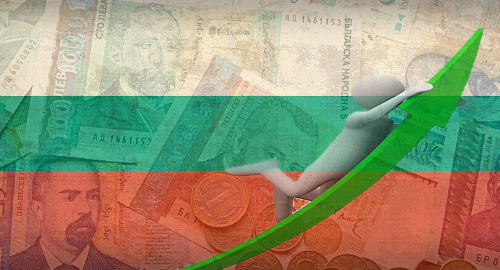 Bulgaria’s gambling market is on track to bring the local government a much larger payday than it collected last year if current trends persist.
Bulgaria’s gambling market is on track to bring the local government a much larger payday than it collected last year if current trends persist.
Last week, Angel Iribozov, chairman of the Bulgarian Association of Producers and Organizers of the Gaming Industry (BTAPOI), announced that the government had derived BGN174.4m (US$101.6m) in taxes and fees from locally licensed gambling operators in the first nine months of 2018.
The sum is BGN30m higher than was collected at the same point last year, and Iribozov suggested the full-year figure will come in 13-15% higher than the total BGN200.5m the government earned in all of 2017.
Iribozov said between BGN28.5m of this amount in 9M18 – 16.5% of the total – was derived from the country’s online gambling licensees, of which there are now 12. These primarily include sites belonging to local offline operators, but also such recognizable international names such as Bet365, Betfair, GVC Holdings’ Bwin brand and The Stars Group’s flagship brand PokerStars.
Bulgarian online gambling licensees pay an upfront fee of BGN100k and are taxed at a rate of 20% of their gross gambling revenue. Online operators are also required to make an annual BGN50k contribution to social causes.
The land-based industry is significant, with 876 gaming halls and 27 casinos at the end of September. A recent survey showed that land-based operators fear that as much as 10% of their customers will transfer their action online over the next three years, but one-third of land-based operators nonetheless planned to expand their gaming operations over the next 12 months.
Bulgaria’s gambling market was worth around BGN3b ($1.9b) in 2017, more than twice the sum generated only a decade ago. This rapid growth has alarmed some gambling critics, who fear that the country – which has one of the lowest per capita incomes in the European Union – is becoming ‘normalized’ to gambling.
In October, local media outlets reported that 53% of men and 44% of women participated in some form of gambling last year, and around 3% of the overall population – about 200k individuals – were either problem gamblers or at risk of becoming problem gamblers.
Lottery scratchcards are a relatively recent phenomenon in Bulgaria but their popularity is through the roof. In 2017, this nation of 7m people purchased some 100m scratchcard tickets. This summer, Bulgaria’s government submitted legislation for approval by the European Commission that would further restrict lottery operators’ ability to advertise their wares by eliminating their ability to show televised interviews with lottery winners in which they discuss their big payday.